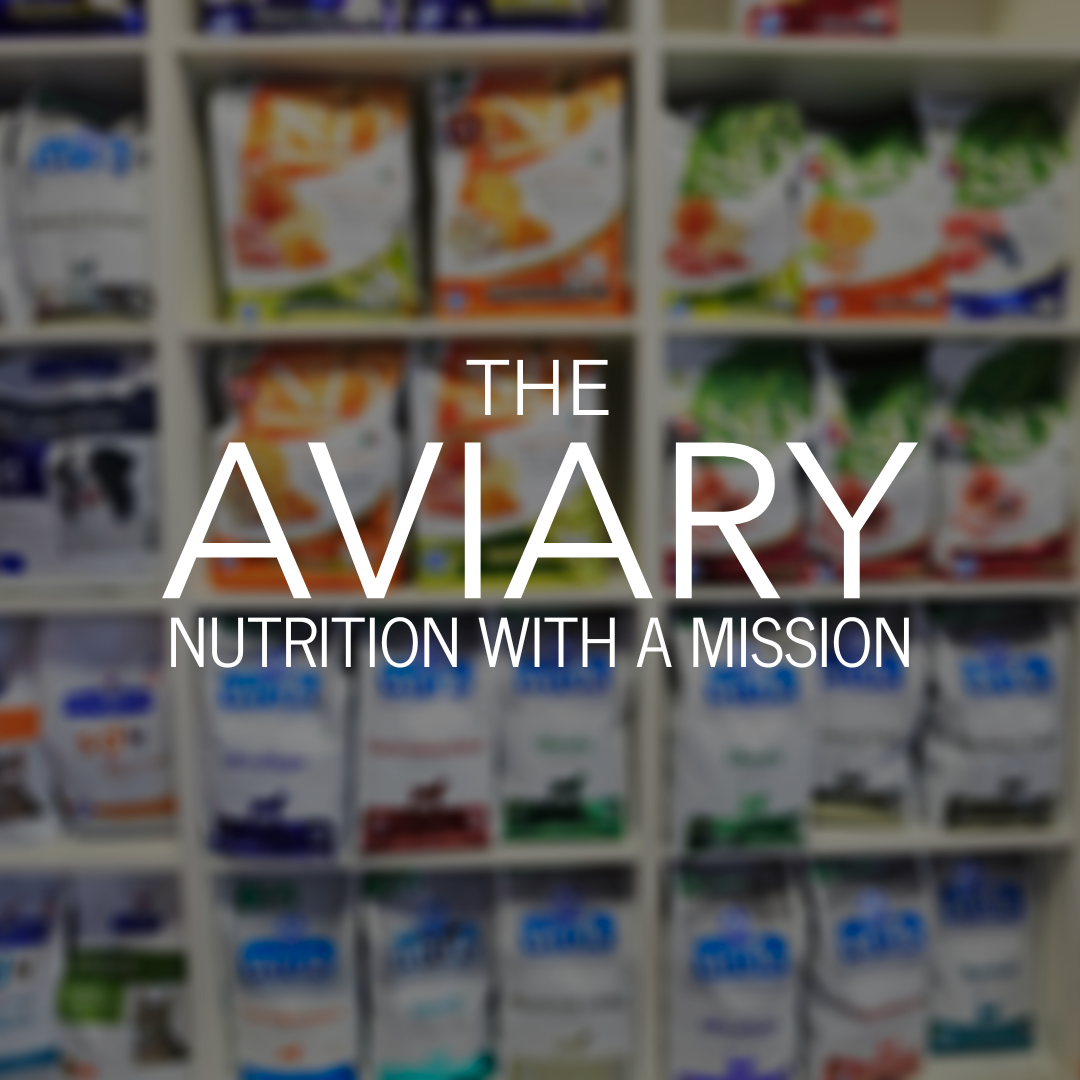
The Best Low-Sugar Diet for Parrots: Why Fruit Isn’t Always a Treat
Fruit feels like the obvious healthy choice, right? It’s colourful, natural, and parrots love it. But when it comes to your bird’s long-term health, especially their hormones, energy levels, and gut, too much of anything can do more harm than good.

Wild vs. Captive: Why It Matters
In the wild, parrots might forage for fruit, but they also cover miles flying, climbing, and avoiding predators, whilst also eating a range of grasses, fibres, roots, botanicals nuts, seeds and vegetation. That constant movement burns a lot of energy, energy they need to get from natural sugars and fats, plus they're fuelling their body and gut with a huge range of different things.
Captive parrots? Not so much. Even with good enrichment and flight time, they’re still living a lifestyle that’s far less demanding physically and mentally. Which means a sugar-rich diet can quickly lead to weight gain, mood swings, excess hormonal behaviour, and gut imbalances.
Not All Fruit Is Created Equal
Modern cultivated fruit is nothing like what parrots eat in the wild. It’s been bred to be sweeter, larger, and juicier, perfect for humans, but often far too sugary for birds.
Take a look at common fruits often given to parrots:
🍇 Grapes and bananas? High in sugar.
🥭 Mango and papaya? Still sugary, though a bit better.
🍎 Apples and berries? Lower, but should still be fed in moderation.

Signs Your Parrot Might Be Getting Too Much Sugar
- Screaming or over-excitability in the evening
- Over-preening or plucking
- Hormonal behaviour (cage aggression, nesting, pacing)
- Loose or watery droppings
- Frequent cravings or food fussiness (picking at select foods and throwing most on the floor)
These behaviours can have many causes, but diet is often a big part of the puzzle.
So, What Should You Feed Instead?
Focus on low-sugar, high-nutrient foods and diversity. In our house, fruit is a small part of a large variety, not a staple. Here’s what makes up the bulk of my birds’ daily meals:
Morning:
- Raw vegetables like kale, beetroot, courgette, carrot, broccoli, chillies, brussels sprouts and cauliflower
- A little fresh herb (mint, basil, parsley)
- Soaked or sprouted seeds (hemp, chia, pumpkin, mung, sunfower and chickpeas etc.)
- High fibre fruit in smaller quantities than veg, to avoid picking and sticking to single tasty ingredients. Try offering green bananas, instead of waiting until they're brown!

Evening:
Soothing Seed Mix – sunflower-free and packed with calming botanicals like milk thistle, lavender, and nigella
Soothing Dry Mix – freeze-dried vegetables and gut-friendly herbs, lightly fermented ingredients, and nutrient dense immune supporting fruits.
Both mixes are designed to support gut health and avoid high-energy triggers. They’re ideal for birds prone to over excitability or hormone-related issues, but are perfect for all birds regardless.
This isn’t to say “never feed fruit.” Parrots need a bit of everything in carefully managed amounts. If your bird is struggling with energy spikes, excess noise, mood swings, or hormonal tendencies, adjust the ingredients that could be the culprit, sometimes this is excess fruit, sometimes it is excess seed. Remember too much of anything is not ideal.
Choose fruit strategically, pick high fibre nutrient dense fruit. Use it as a high-value reward in training or as a small portion of your chop, not the bulk of your bird's bowl.
FAQ: Low-Sugar Diets for Parrots
Is fruit bad for parrots?
Fruit isn’t “bad” at all, and forms an important part of a varied diet, but like anything, too much of any one ingredient can have negative effects. Modern cultivated fruit is far higher in sugar than wild fruits, which can lead to energy spikes, weight gain, and hormonal behaviour in captive birds. Wild parrots eat fruit before they reach peak ripeness, so they're eating fruit far lower in sugar content, and higher in fibre and nutrients.
What fruits are best for parrots?
High-fibre, nutrient-rich fruits like berries, apples (without seeds), and pomegranate are the best choices, especially before peak ripeness. Grapes, overripe bananas, and mango should be offered less often because of their high sugar content.
How much fruit should I feed my parrot?
Fruit should be a small portion of the daily diet, not the main component. Vegetables, sprouted seeds, herbs, and dry mixes should make up the bulk of meals, with fruit offered in moderation as a treat or training reward.
What are the signs my parrot is eating too much sugar?
Common signs include screaming or hyperactivity in the evenings, hormonal behaviours like nesting or aggression, watery droppings, over-preening or plucking, and fussiness around food. This is the case for any food that is forms too much of the overall diet.
What should I feed instead of too much fruit?
Focus on raw vegetables, herbs, sprouted seeds, and balanced mixes like The Aviary’s Soothing Seed Mix and Soothing Dry Mix. These foods support gut health, balance energy, and reduce sugar-driven hormonal behaviour.
Can I use fruit for training my parrot?
Yes, fruit works well as a high-value reward in training because parrots enjoy the sweetness. Just keep portions small and balance it out with a diet rich in vegetables, sprouts, and botanicals.
